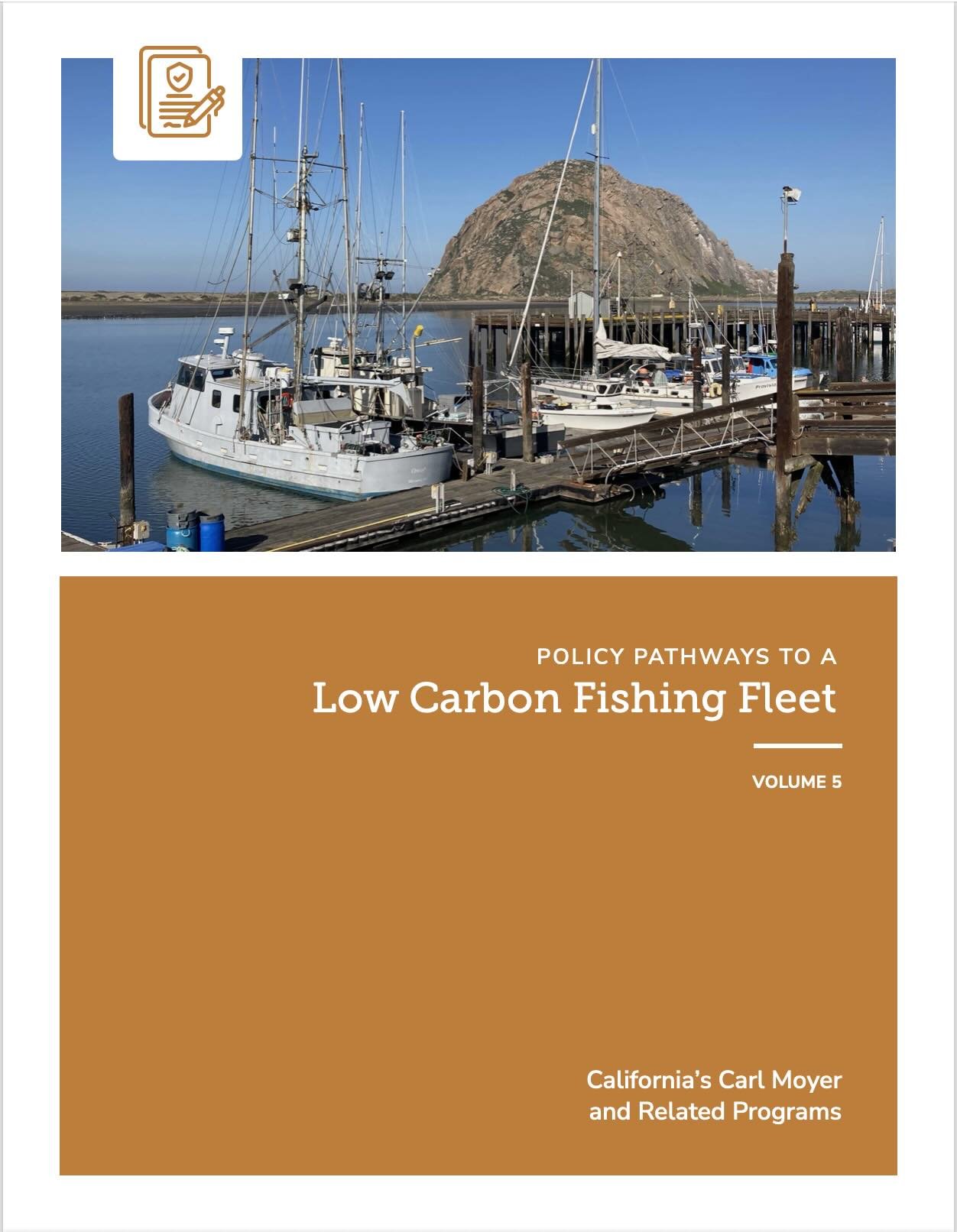
Volume 1: EPA Diesel Emissions Reduction Act (DERA) National Grants Program
In this volume: DERA is one of several existing public programs that offers an expandable or replicable model for supporting a transition to a low carbon fishing fleet. Commercial fishermen have had limited success tapping into the benefits of its national grants program. Through several case studies, we probe the reasons why, and learn how a few fishermen’s organizations have been able to buck this trend and repower vessels in their fleet with new, higher EPA tier engines by using this program.

Volume 2: EPA Diesel Emissions Reduction Act (DERA) Tribal Grants Program
In this volume: DERA is one of several existing public programs that offers an expandable or replicable model for supporting a transition to a low carbon fishing fleet. Pacific Northwest tribes have an impressive track record of leveraging this federal program to support fleet repowers for their fishermen. In this volume, we learn the secrets to their success as well as ways the program could potentially be improved.

Volume 3: EPA Diesel Emissions Reduction Act (DERA) State Grants Program
In this volume: DERA is one of several existing public programs that offers an expandable or replicable model for supporting a transition to a low carbon fishing fleet. States receive EPA funding to implement their own DERA programs; some choose to include fishing vessels while others do not. In this volume, we learn from fishermen in Maine, Connecticut, and Rhode Island who have utilized the program to repower their engines, illuminating both the programs’ highlights and areas for improvement.

Volume 4: USDA Rural Energy for America Program (REAP)
In this volume: REAP is one of several existing public programs that offers an expandable or replicable model for supporting a transition to a low carbon fishing fleet. Fishermen and their partners in Alaska have used a networked approach to unlock the benefits of this program, helping fishermen access technical assistance, energy audits, and investments in refrigeration, lighting, and more. Lessons from this success story can help fishermen in other rural areas achieve similar benefits.

Volume 5: California’s Carl Moyer and Related Programs
In this volume: Carl Moyer is one of several existing public programs that offers an expandable or replicable model for supporting a transition to a low carbon fishing fleet. California’s state policy has enabled its fleet to have some of the newest engines in the nation. In this volume, we share lessons from fishermen who have accessed or attempted to access this program, an engine installer who helps fishermen access this funding, and an air district administrator who plays a role in funding decisions.

Volume 6: Fishermen’s Recommendations for New Programs and Policies
In this volume: Sourced from fishermen coast to coast, this volume outlines an ambitious vision for a transition to a low carbon fishing fleet buttressed by holistic federal and state support and taking the form of a five-pronged strategy encompassing research and development, pilot and demonstration projects, knowledge transfer and workforce development, incentive programs to defray costs of adoption, and the creation of comprehensive energy transition plans for fishing ports.
